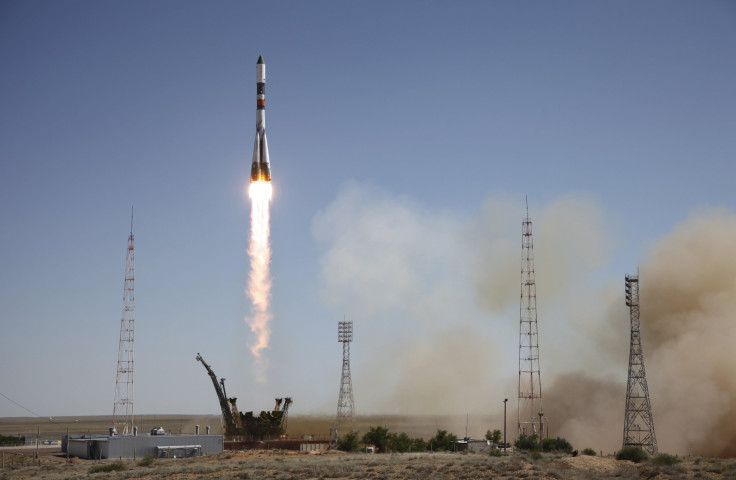Russian Military Satellite Fails In Major Blow To Moscow's Federal Space Agency

The Russian Federal Space Agency has reportedly lost contact with a highly advanced satellite that was launched into space over the weekend. The military grade satellite, which was one of two that was sent into orbit, failed to separate from the booster rocket after entering space, according to a Monday report from Russian state news site Tass. The second satellite was successfully deployed.
"The spacecraft... is recognized as lost since it is impossible to use it according to its purpose," a source told Tass, adding that a repeat attempt to separate the satellite from the upper-stage rocket was unsuccessful. The Soyuz-2.1B rocket, known as Kanopus-ST, successfully launched from Plesetsk cosmodrome in northwest Russia Saturday.
Russian Satellite Set To Crash Back To Earth https://t.co/pZZysxHzhG
— Sky News (@SkyNews) December 7, 2015
The lost satellite was designed both for civilian and military use, primarily to scan the Earth's oceans and weather systems from space including spotting submarines for the military. The satellite took 10 years to develop and was considered highly advanced, noted the Tass report that cited space agency insiders as sources. The space agency has not released details of the other satellite's purpose.
A commission has already been established to discover what happened, although early reports suggest that a release mechanism on the rocket failed to open and separate from the satellite. The rocket and attached satellite will burn up in the atmosphere as both begin the ascent back to Earth in the coming days, according to Tass.
Russia has made a habit of losing costly satellites, which it launches commercially and for Russia. In May, Russia lost a satellite that broke up over Siberia just minutes after launching. The full $390 million cost of the satellite and launch was covered by insurance.
Another Russian rocket carrying one of the most advanced communication satellites ever designed by Russia fell back to Earth in May last year, marking the second time that the Proton-M rocket system failed in less than a year.
Just 10 months before, a rocket carrying three Russian-made Glonass navigation satellites exploded before launch. The rocket system used in launches has suffered seven major failures since Dec. 2010.
© Copyright IBTimes 2025. All rights reserved.




















